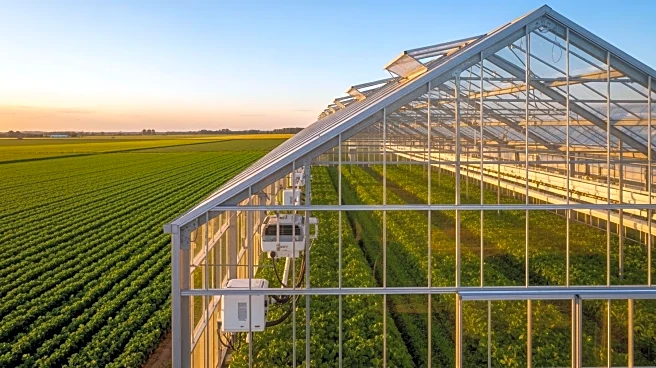What's Happening?
Sun Qixin, President of China Agricultural University, emphasized the need for technological, policy, and institutional innovations to build resilience in the agricultural food system against global climate
change. He highlighted that agriculture contributes significantly to greenhouse gas emissions, including methane and nitrous oxide, which are more potent than carbon dioxide. Sun Qixin advocates for a green transformation in agriculture through technological advancements to reduce emissions and enhance carbon sequestration. He also discussed the importance of smart agriculture and the integration of artificial intelligence to improve productivity and competitiveness in agriculture.
Why It's Important?
The call for innovations in agriculture is crucial as climate change poses severe challenges to food security globally. By reducing greenhouse gas emissions and enhancing carbon sequestration, agriculture can play a significant role in mitigating climate change. The focus on smart agriculture and technological integration can lead to increased productivity and competitiveness, which is vital for food security and economic stability. The transformation of agriculture not only addresses environmental concerns but also has social implications, such as reducing the income gap between urban and rural areas.
What's Next?
China aims to become an agricultural powerhouse by strengthening its agricultural sector and improving productivity. This involves expanding the scale of operations and increasing the added value of agricultural products. The country plans to foster agricultural enterprises and integrate artificial intelligence into agriculture. Additionally, China is committed to international cooperation in agricultural technology to aid other developing countries in achieving food self-sufficiency.
Beyond the Headlines
The transformation of agriculture in China is not only an economic issue but also a social one. Improving the rural environment and reducing the income gap between urban and rural citizens are essential aspects of this transformation. The integration of technology in agriculture can lead to long-term shifts in the industry, promoting sustainable practices and enhancing global food security.










